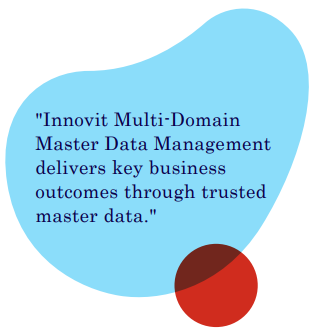Innovit UDI Multi-Connector
SYNDICATING RELIABLE DATA TO
TRADING PARTNERS
Datasheet > Multi connector > Challenges > Capability Highlights > Hosting > Benefits
Unique Device Identification (UDI) is a system first instituted by the FDA to mark and identify medical devices within the healthcare supply chain. It was implemented to help improve patient safety by solving traceability challenges such as product recalls and counterfeit devices. This regulation grouped devices into three risk classifications (Class III, Class II, Class I) and required medical device manufacturers to submit UDI information about their products to the GUDID (Global Unique Device Identification Database) – a central repository of device information intended for public access by healthcare providers and clinicians.
Suppliers of Class III and Class II devices in America have already had to meet submission deadlines. Class I manufacturers are now preparing for this requirement as the September 2020 compliance date quickly approaches.
Other countries and regions are now fast-tracking the adoption of UDI regulations in their respective jurisdictions including the European Union with the Medical Device Regulation (MDR). The adoption of UDI policies around the world presents a major challenge for global medical device manufacturers trying to understand and comply with this flurry of regulations. In addition, manufacturers are presented with the challenge of submitting UDI data to a myriad of country specific regulatory agencies, each with their variation to this standard.
Innovit’s UDI Multi-Connector solves these challenges by allowing device manufacturers to implement a “global system and unified process” that is fully integrated with internal systems to submit product data to multiple UDI regulatory agencies simultaneously. It is a solution approved by the FDA for third-party submission of UDI data to the GUDID.

COMMON CHALLENGES
Fragmentation of UDI attributes across multiple systems
– Variability of data requirements across different
target markets and regulatory agencies
– Inability to keep up with ongoing changes to UDI standards and attributes
– Individual and siloed connectors for different regulatory agency databases
– High cost of validating custom-built systems

“”Innovit UDI MultiConnector enables organizations achieve timely compliance with local UDI regulations.”
INNOVIT UDI MULTI-CONNECTOR
Innovit’s UDI Multi-Connector is a GAMP5 validated and 21 CFR Part 11 compliant solution that allows device manufacturers to submit UDI data to different regulatory databases including GUDID and EUDAMED. Suppliers and brand manufacturers automatically get a pre-packaged list of attributes, code lists and validations for submission to the regulatory agencies of their target markets. Innovit’s UDI Multi-Connector also automates the submission of UDI data in the specific data format and messaging protocol required by the regulatory agency (e.g. HL7/SPL for the FDA). A complete message exchange history is
also stored in Innovit’s solution to provide data stewards in Regulatory Affairs departments with full visibility and traceability of their data submission history.

CAPABILITY HIGHLIGHTS
| Data Import | Import templates for data consolidation |
| Data Maintenance | Pre-configured UDI attributes |
| Pre-configured UDI attribute code lists | |
| Pre-configured UDI attribute validation rules | |
| Global and regulatory agency specific data maintenance | |
| Risk classification management | |
| Data Governance | UDI attribute validations for each target market |
| Workflow processes for data enrichment and approval | |
| Granular role-based security | |
| Audit trail for data and message exchange history | |
| eSignature for full approval traceability | |
| Data Submission | GUDID |
| EUDAMED (UDI Module*) * Please review the Innovit MDR Multi-Connector datasheet for submission of all six MDR modules |
HOSTING
Different hosting options are available through Innovit for PIM customers.
– Hybrid Cloud: Shared server but dedicated environment
– Public Cloud: Multi-tenanted with shared server and shared environment
– Private Cloud: Dedicated server and dedicated environment
BENEFITS
– Achieve compliance with local UDI requirements
– Automate data validation and submission
– Enhance data quality and governance
– Reduce operational and IT cost
